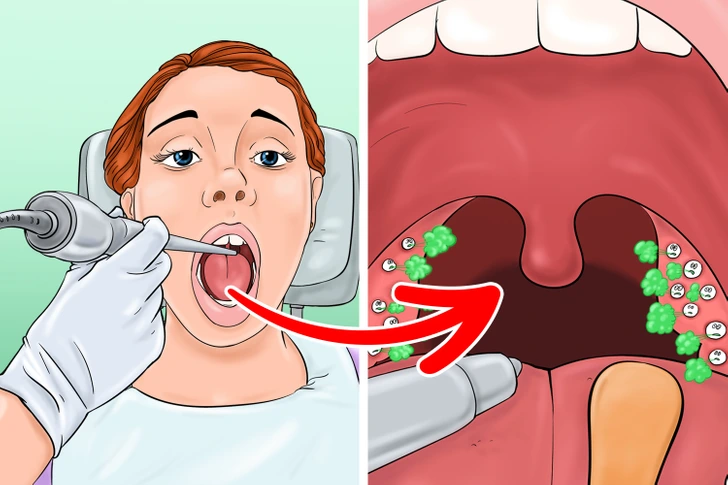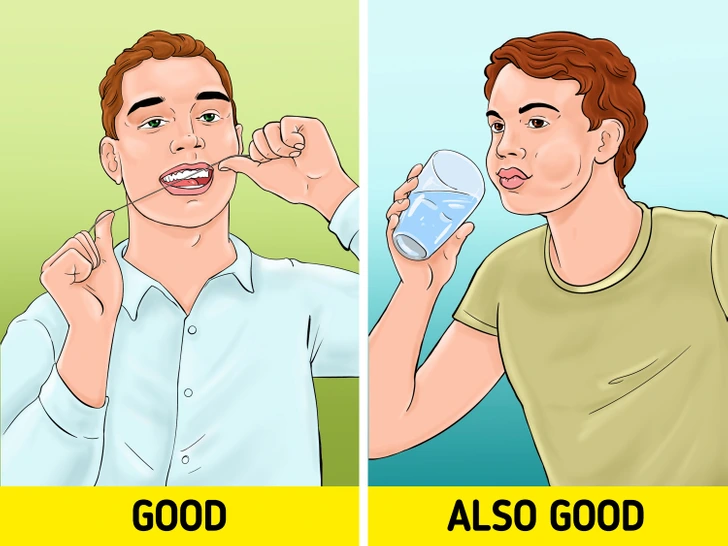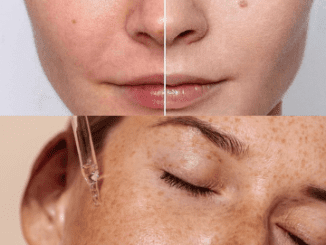Bad breath, or halitosis, is more common than you might think—it affects 1 in 4 people worldwide. While it’s often caused by poor oral hygiene, other factors like diet, dehydration, and certain habits can also play a role. Bad breath can lead to awkward social situations and even affect your confidence, but the good news is that it’s manageable. Let’s dive into five simple, practical things you can do to keep your breath fresh and your confidence high.
1. Get Rid of Tonsil Stones

Tonsil stones might sound harmless, but they’re often a hidden culprit behind bad breath. These small, white blobs form in your tonsils and are made of microbes and bacteria. Because they’re tucked away, they’re not always visible—but they can cause a noticeable odor.
So, how do you tackle tonsil stones? Here are some easy remedies:
- Use a substance-free mouthwash to keep your mouth clean without irritating your tonsils.
- Gargle warm salty water to soothe your throat and dislodge small stones.
- Try gargling apple cider vinegar, which has antimicrobial properties.
- Use a low-pressure water flosser to gently clean your tonsils and prevent stones from forming.
By taking these steps, you can keep your tonsils healthy and your breath fresh.
2. Don’t Skip Breakfast
We’ve all heard the saying, “Breakfast is the most important meal of the day,” and this applies to your oral health too! Research shows that skipping breakfast can lead to bad breath, especially in teenagers. Eating breakfast stimulates saliva production, which helps wash away bacteria that cause odor.
What should you eat? Focus on healthy, low-sugar options such as:
- Fiber-rich foods like whole-grain toast or oatmeal
- Fresh fruits like apples and bananas
- Yogurt or milk, which can balance your mouth’s pH level
A hearty breakfast not only fuels your day but also keeps your breath smelling fresh.
3. Breathe Through Your Nose, Not Your Mouth
Did you know that breathing through your mouth can cause bad breath? Mouth breathing dries out your mouth, reducing saliva production, which is essential for keeping bacteria in check. Over time, this can lead to chronic bad breath and even gum disease.
Switching to nasal breathing is a smart choice for your oral health. Breathing through your nose:
- Keeps your mouth hydrated by preserving saliva
- Reduces the risk of gum disease and plaque buildup
- Helps prevent jaw problems caused by excessive mouth breathing
Interestingly, studies have even shown that children who breathe through their mouths can develop bad breath. Training yourself to breathe through your nose may seem small, but it can make a big difference.
4. Drink Water After Eating Strong Foods

Strong-smelling foods like garlic, onions, coffee, and spicy dishes are notorious for causing bad breath. The chemicals in these foods enter your bloodstream and eventually make their way to your lungs, where they’re released through your breath.
While avoiding these foods altogether might not be realistic, here’s how you can combat their effects:
- After eating spicy foods, chew sugar-free gum to freshen your breath.
- If you’ve had coffee, drink water before and after your cup to rinse away odor-causing compounds.
- Eating tuna or fish? Squeeze some lemon over your meal to neutralize strong odors.
Staying hydrated is also key. Drinking plenty of water throughout the day helps flush out lingering food particles and keeps your mouth moist, reducing the chance of bad breath.
5. Floss Daily to Remove Plaque
Plaque buildup isn’t just bad for your teeth—it’s also a major cause of bad breath. When food particles get stuck between your teeth, they become a breeding ground for bacteria. Over time, this leads to unpleasant odors and even gum disease if left unchecked.

Flossing is your secret weapon against plaque. By cleaning between your teeth, you remove debris that brushing alone can’t reach. For an extra boost, follow up with a mouth rinse to wash away bacteria. Make flossing a daily habit, and your breath will thank you!
The Role of Oral Hygiene in Fresh Breath
Beyond these specific tips, maintaining good oral hygiene is the foundation for fresh breath. Brushing your teeth twice a day, replacing your toothbrush every three months, and visiting your dentist regularly for cleanings are all essential steps. Don’t forget to brush your tongue as well—this is where a lot of odor-causing bacteria hide.
The Connection Between Health and Halitosis
Sometimes, bad breath can signal underlying health issues. Conditions like sinus infections, acid reflux, and even diabetes can cause persistent bad breath. If you’ve tried everything and still struggle with halitosis, it’s a good idea to consult your doctor or dentist. They can help identify the root cause and recommend a treatment plan.
Why Fresh Breath Matters
Fresh breath isn’t just about smelling good—it’s about feeling confident and maintaining your overall health. By addressing the root causes of bad breath and adopting simple habits like flossing, staying hydrated, and eating a balanced breakfast, you can enjoy a fresher, healthier mouth.
Conclusion: Take Control of Your Breath
Bad breath doesn’t have to hold you back. With these five tips—removing tonsil stones, eating breakfast, breathing through your nose, drinking water after strong foods, and flossing daily—you can take control of your oral health and feel confident in every interaction. Remember, fresh breath starts with small, consistent habits. So why not start today? Your mouth (and everyone you talk to) will thank you!


